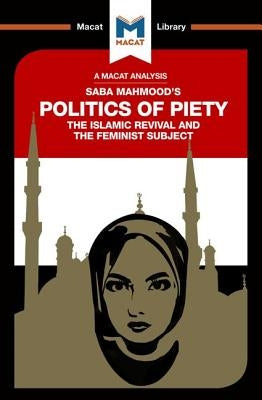Before you leave...
Take 20% off your first order
20% off
Enter the code below at checkout to get 20% off your first order
Discover summer reading lists for all ages & interests!
Find Your Next Read

Saba Mahmood's 2005 Politics of Piety is an excellent example of evaluation in action.
Mahmood's book is a study of women's participation in the Islamic revival across the Middle East. Mahmood - a feminist social anthropologist with left-wing, secular political values - wanted to understand why women should become such active participants in a movement that seemingly promoted their subjugation. As Mahmood observed, women's active participation in the conservative Islamic revival presented (and presents) a difficult question for Western feminists: how to balance cultural sensitivity and promotion of religious freedom and pluralism with the feminist project of women's liberation? Mahmood's response was to conduct a detailed evaluation of the arguments made by both sides, examining, in particular, the reasoning of female Muslims themselves. In a key moment of evaluation, Mahmood suggests that Western feminist notions of agency are inadequate to arguments about female Muslim piety. Where Western feminists often restrict definitions of women's agency to acts that undermine the normal, male-dominated order of things, Mahmood suggests, instead, that agency can encompass female acts that uphold apparently patriarchal values.
Ultimately the Western feminist framework is, in her evaluation, inadequate and insufficient for discussing women's groups in the Islamic revival.
Dr Jessica Johnson holds a PhD in social anthropology from the University of Cambridge and is currently a lecturer at the Department of African Studies and Anthropology at the University of Birmingham. Her research focuses on Southern Africa, in particular the anthropology of gender and law in Malawi.
Dr Ian Fairweather is lecturer in social anthropology at the University of Manchester. His research focuses on religious behavior and on the ways in which contemporary postcolonial identity strategies are articulated performatively.
Thanks for subscribing!
This email has been registered!
Take 20% off your first order
Enter the code below at checkout to get 20% off your first order